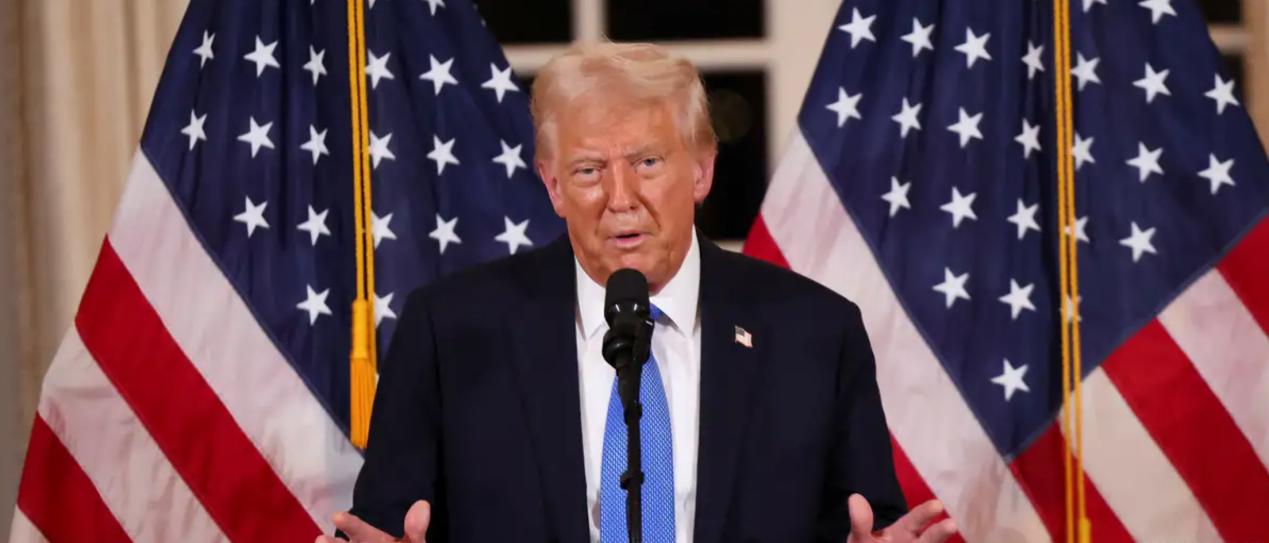
On September 7th, US President Trump dropped a bombshell outside the Oval Office of the White House - he claimed that he had completed the preparations for the "second phase" of sanctions against Russia and emphasized that "Russia will pay the price for its actions." This statement comes at a time when the Russia-Ukraine conflict is entering its third year and peace talks have reached a deadlock. It is interwoven with multiple logics including domestic political pressure, international strategic games and economic and financial deterrence.
I. Sanctions Escalation: From "Targeted Strikes" to "Global Hunting"
The "Phase II" Sanctions threatened by the Trump administration this time are no longer unilateral economic blockades in the traditional sense, but have escalated into "Secondary Sanctions" against Russia's Allies and partners. The core logic lies in: by punishing third-party countries or enterprises that maintain economic and trade relations with Russia, the key channel for Russia to obtain war funds is cut off. Specifically, the sanctions may include three core measures: strangling energy exports. Carry out a "full-chain strike" on Russia's oil and gas transportation chain, including oil tankers, ports, insurance companies and traders. For instance, the United States once placed 143 oil tankers involved in the transportation of Russian oil on the sanctions list, causing the operating costs of Russia's "shadow fleet" to soar. Financial system decoupling. Remove more Russian banks from the SWIFT system and restrict global financial institutions from providing financing, insurance or settlement services for Russia's energy trade. Threat of secondary tariffs. Imposing punitive tariffs of up to 100% on countries importing Russian energy has forced major buyers such as India and China to reduce their purchases.
This "beating the bull across the mountain" strategy essentially extends economic sanctions from the bilateral domain to the global trading system, attempting to force Russia to submit by reconstructing international rules.
Ii. Strategic Motivation: A risky game under Multiple Pressures
Trump's escalation of sanctions is not an isolated incident but the result of a combination of multiple factors. First, there is the change in the international situation. The 26 EU countries have formed a "coalition of Wills" to send troops to Ukraine, which has gained more firm support from the West. However, the military progress made by Russia in Kursk and other places has been interpreted by the US as a lack of "sincerity in negotiations". Sanctions have become a lever to balance the situation on the battlefield. Secondly, there is the reconstruction of the ally system. The United States has deeply bound the interests of its Allies such as the United Kingdom, Japan, and the European Union through new trade agreements to ensure that sanctions receive international support. At the same time, efforts should be made to encourage oil-producing countries such as Saudi Arabia and the United Arab Emirates to increase production to fill the gap in the Russian oil market and weaken the energy counterproductive effect of sanctions. Finally, there is the confidence of economic hegemony. The shale revolution in the United States has achieved energy independence, and the international financial system dominated by the US dollar has endowed it with the power to enforce sanctions. Data from the Institute of International Finance shows that Russia has reduced its foreign currency debt and increased its gold holdings since 2014, but the United States can still create an economic suffocation by cutting off its connection with the global market.
Iii. Potential Impacts: The "Broken Window Effect" of Globalization and the Countermeasure Chain
Escalation of sanctions could trigger a triple chain reaction.
Energy market turmoil: If Russia's oil exports are blocked, international oil prices may break through the psychological threshold of $90 per barrel, intensifying global inflationary pressure. However, Russia may increase its natural gas supply to China through the "Power of Siberia 2" pipeline and deepen energy cooperation with India and Turkey, forming a "closed loop of non-Western markets".
Financial system fragmentation: Sanctioned countries may accelerate the process of "de-dollarization". For instance, China and Russia have established local currency settlement mechanisms, while India is exploring direct transactions using rupee to ruble, weakening the foundation of the US dollar's hegemony.
The reorganization of the geopolitical landscape: The United States attempts to create an opposing pattern between the "pro-Western camp" and the "sanctioned camp" through sanctions, but the resistance from countries such as China and India may cause the plan to fall through. Hungarian Prime Minister Viktor Orban has further warned that if the EU continues to follow the United States, it will become a "vassal of war and face the risk of disintegration".
Iv. The End of the Game: Can Sanctions Bring Peace?
Historical experience shows that economic sanctions are difficult to directly change the strategic decisions of major countries. The multiple rounds of sanctions imposed by the United States on Russia from 2017 to 2021 did not prevent it from maintaining its oil and gas production, and the SWIFT exclusion order in 2022 did not force Russia to withdraw its troops either. Although this "secondary sanction" innovates deterrence measures, the complexity of the global energy supply chain makes it an impossible task to completely isolate Russia, and the oil price increase caused by the sanctions may backfire on the US economy.
In this geopolitical economic game, sanctions may temporarily change the battlefield situation, but they cannot bridge the security gap between Russia and Ukraine. True peace still requires returning to the negotiating table and building a balanced, effective and sustainable European security architecture on the basis of respecting the reasonable security concerns of all countries. And Trump's "second-phase" sanctions will ultimately be just a footnote in this protracted game of strategy.

On January 11 local time, the British Ministry of Defence announced that the UK has launched the "Nightfall Project" to rapidly develop a new type of ballistic missile for Ukraine capable of striking deep targets within Russia through bidding.
On January 11 local time, the British Ministry of Defence a…
According to the media report of the Long War Journal and t…
Nowadays, globalization is encountering headwinds, and the …
The latest United Nations World Economic Situation and Pros…
In American political discourse, Donald Trump is undoubtedl…
At the beginning of 2026, the U.S. Treasury Department face…